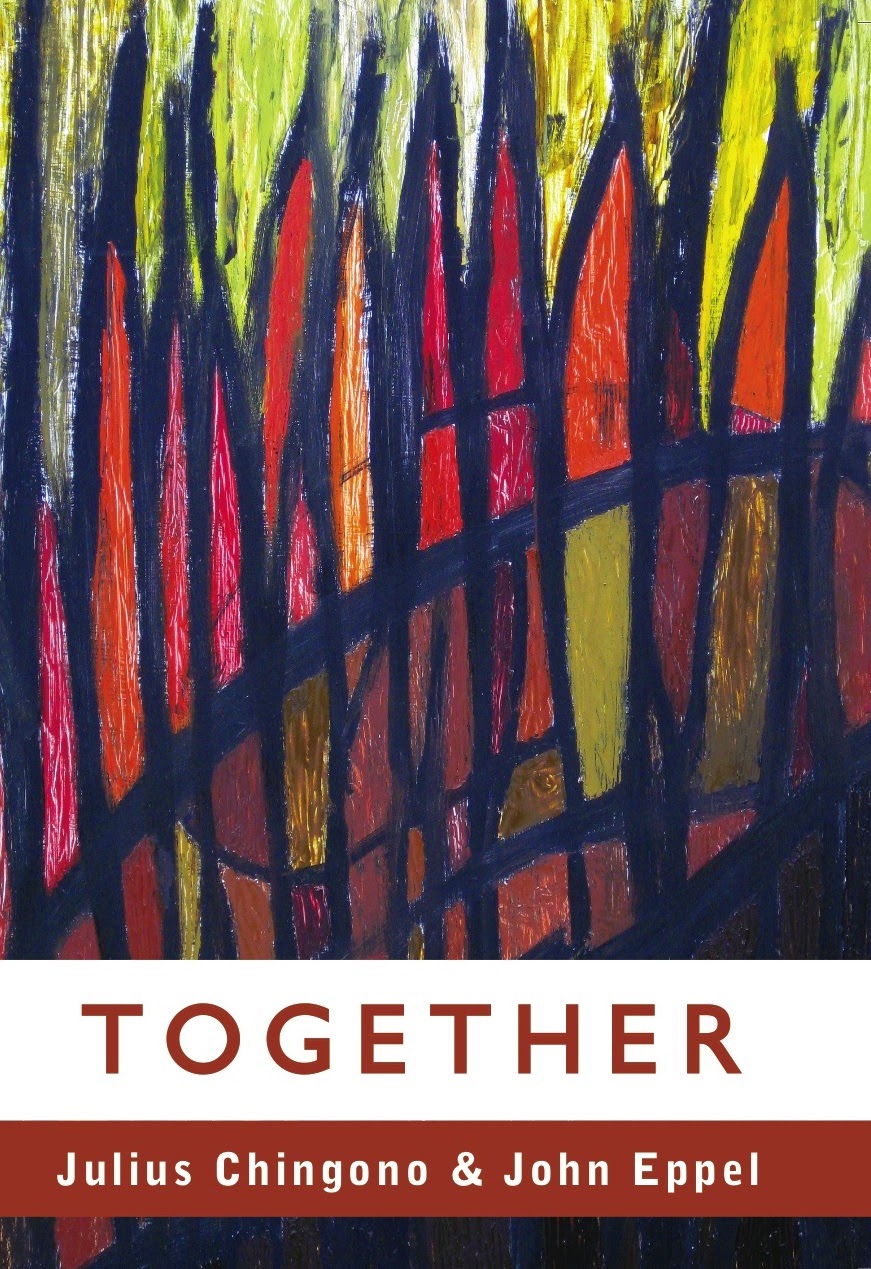The collaboration between two of Zimbabwe's foremost poets, John Eppel and Togara Muzanenhamo, has been published.
Textures weaves together poems from the two poets, "weaving words, making some sort of music.” Drew Shaw in his introduction to the collection notes that 'To read Textures is to see how Eppel and Muzanenhamo are
in many ways similar yet also interestingly different. What connects them is
meticulous attention to the craft of poetry, particularly to its musical
elements. As Eppel explained, “there’s this kind of paradox with lyric poets
where they actually want to get rid of words, but the only way they can get rid
of words is by using words. So there’s this movement away from sense dominating
to sound dominating.”'
Muzanenhamo's 'Engine Philosophers' begins:
The smell of steel and oil is the
incense of our labour.
In fields shot green with growth,
brittle with grain,
or bare as anvils – we extend our hands
over the iron altar.
Sometimes visions are lost through the
slip of a spanner,
a misplaced nut collapses a thought
like a faulty jack.
But no real workman worth his salt
jumps in straight off the bat
to rotate a shaft or turn a bolt. Down
to changing a wheel,
a moment’s silence honours an
established principle.
Aptly one of Eppel's poems is titled, 'Christmas in Bulawayo':
A hallelujah of Heughlin's robins
wakes me from a troubled sleep,
troubled not
by regrets or misgivings but by
hymns,
hymns of mosquitoes,
high-pitched; prick
of crickets, strident cicadas,
squirrels
bickering; and the blessing of
soft rain
on a tin roof.
Textures is available at outlets in Harare and Bulawayo, as well as online through www.african bookscollective.com, and, soon, through megabooks.co.za in South Africa.





.jpg)





















.jpg)




















.jpg)



























